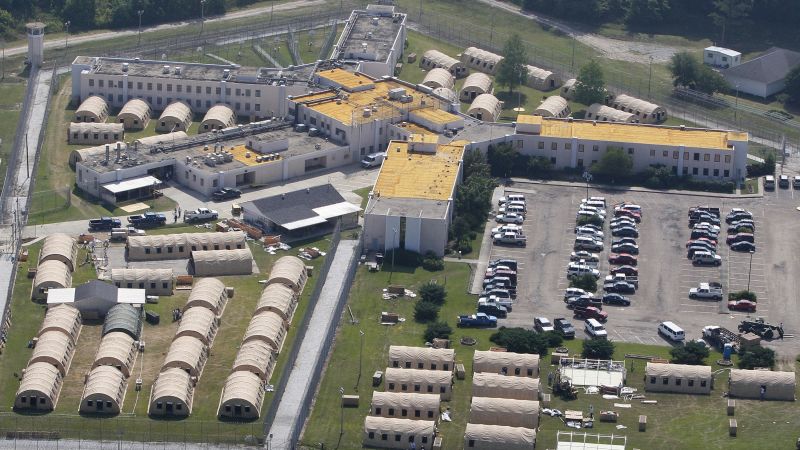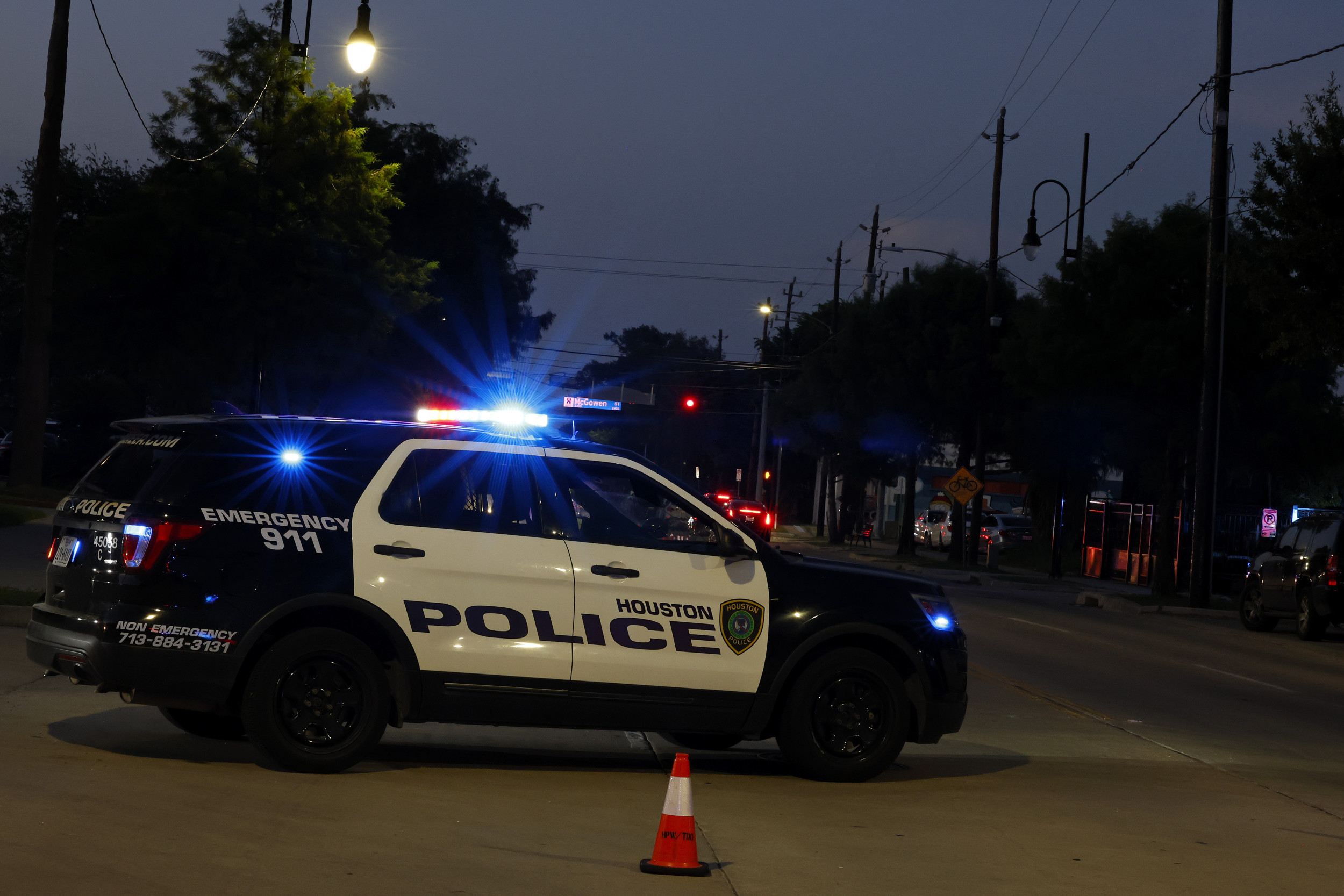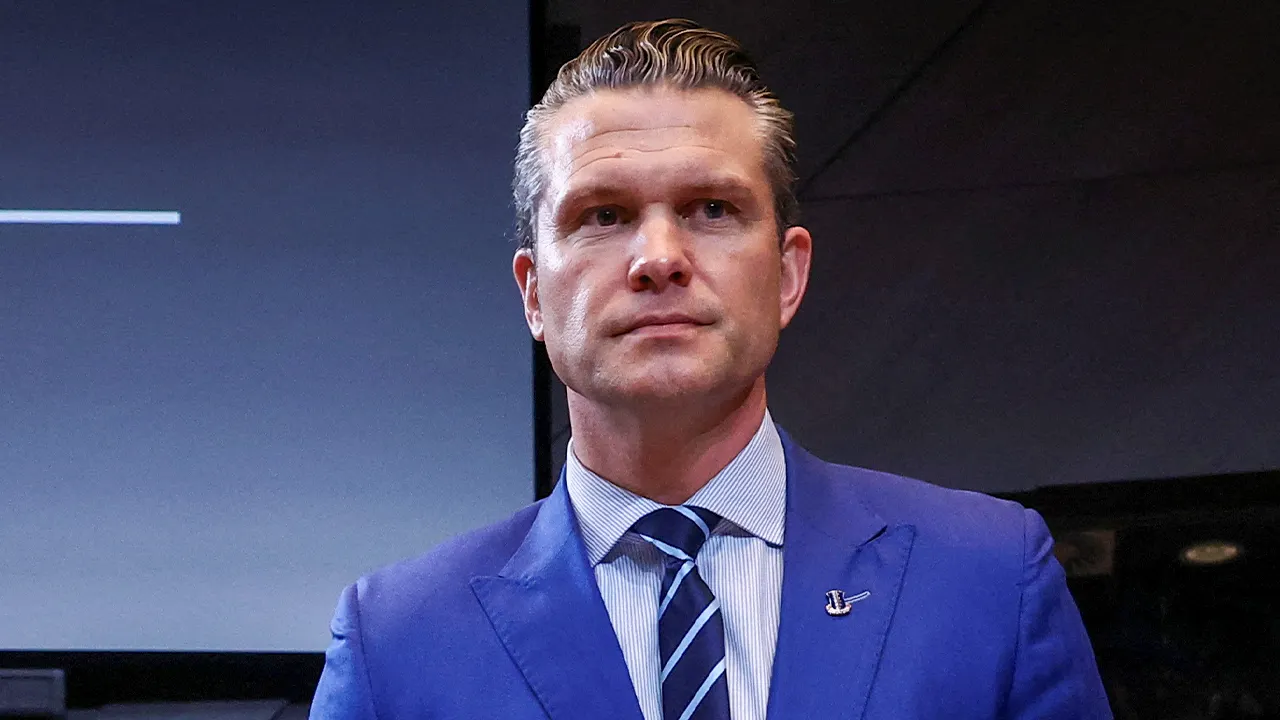CNN
—
Five-point shackles over open wounds. Foul-smelling milk provided in solitary confinement. Feces left in shower cells.
These incidents and others were reported to the ACLU and other legal aid providers between 2022 and 2024 by detainees at the Central Louisiana ICE Processing Center – where Columbia University graduate student and Palestinian activist Mahmoud Khalil, facing possible deportation, has been locked up for two weeks. About 370 miles away, at a different facility in Texas, Georgetown University research fellow Badar Khan Suri faces a similar fate following a Trump administration order to crack down on pro-Palestinian demonstrations on college campuses.
Khan Suri was transferred Friday from the Alexandria Staging Facility in Louisiana – where his lawyers said he was unable to get any contact with the outside world – to the Prairieland Detention Facility in Texas.
“ICE detention centers are … effectively black boxes. They are deliberately placed in remote areas where they are out of sight from the public and difficult for families and legal representation to visit,” said Jeff Migliozzi, communications director with Freedom for Immigrants, a national advocacy group monitoring civil rights issues in immigration detention.
The Central Louisiana ICE Processing Center, with a capacity of 1,160 people, is in the small town of Jena, home to more than 4,100 people. About an hour away is a 72-hour holding facility in Alexandria, where Khan Suri was held. Detainees there are either immediately deported or transferred to another facility. The facilities are hours from metro areas such as Baton Rouge and New Orleans.
They are among the state’s nine Immigration and Customs Enforcement detention centers and staging areas. Like many ICE facilities across the country, they are privately operated.
ICE did not respond to a request for comment about the conditions at its Louisiana facilities, but its policies indicate detention is non-punitive. The GEO Group, the corporation that runs the facility where Khalil is being held, has denied abuse allegations.
Louisiana, which grew into a locus of detention during President Donald Trump’s first administration, has the second-largest contingent of ICE detainees in the nation, trailing only Texas, according to the Transactional Records Access Clearinghouse.
Detainees are cut off from support systems and subjected to “a culture of abuse” at Louisiana’s detention centers, said Anthony Enriquez, the vice president of US advocacy and litigation at Robert F. Kennedy Human Rights, which advocates for civil rights and social justice issues. The non-profit champions the causes pushed by the late senator, and it’s not affiliated with US Health and Human Services Secretary Robert F. Kennedy Jr.
Detainees face limited phone access, severe mistreatment, inadequate medical care and poor living conditions, he and other legal experts and immigration advocates told CNN.
Detainees have reported similarly inhumane conditions in Texas ICE facilities, which for years have been plagued by reports from immigration attorneys of medical neglect, extensive use of solitary confinement, allegations of mistreatment of transgender people and shortcomings in sexual assault prevention.
Prairieland Detention Center, a 782-bed facility that opened during the first Trump administration, is in a rural area of North Texas.
Khalil’s and Khan Suri’s lawyers and relatives say their treatment has been in line with the detention centers’ reputation. They have had limited communication at the three facilities. In Louisiana, Khalil had delayed access to medication and meal accommodations were not made for Khan Suri.
Their cases are part of a series of arrests and deportation proceedings the Trump administration has brought against people associated with US colleges and universities, sending shockwaves across the academic community and raising concerns about the protection of free speech.
As the Trump administration continues attempts to deport international university students who protested Israel’s war in Gaza, Khalil and Khan Suri await next steps as their lawyers challenge their detention.
Khalil, a legal permanent US resident married to a US citizen, has eaten little because of the stress of detention – even after fasting 12 hours a day for Ramadan, his eight-months-pregnant wife, Noor Abdalla, said in a statement of support. A stomach ulcer Khalil has had for years may worsen without proper care, and he wasn’t provided his daily medication until two days after he arrived in Jena, Abdalla said.
Khalil played a central role last year in student-led protests demanding a ceasefire in Gaza.
The Trump administration has accused Khalil – without providing evidence – of being a terrorist sympathizer and supporting Hamas. Khalil’s lawyers accuse the administration of targeting him for participating in demonstrations in support of Palestinians, violating his First and Fifth Amendment protections.
After immigration officers arrested Khalil outside his New York apartment March 8, he was taken to the Central Louisiana ICE Processing Center. Abdalla – who is unable to fly to Louisiana – says she’s concerned for Khalil’s well-being.
“I felt like Mahmoud had been kidnapped from our home, and no one could tell me where he was or what was happening to him,” she said.
On March 19, a federal judge ordered Khalil’s case be transferred from New York to New Jersey, where Khalil was briefly held before his transfer to Louisiana. Now Khalil will have to remain in Louisiana until a New Jersey judge decides whether he should be transferred. Khalil’s lawyers told CNN they were unable to provide comment on his experience at the detention center “given ongoing safety and security concerns.”
He remains detained ahead of an immigration hearing April 8.
The Central Louisiana ICE Processing Center is considered “one of the worst immigration detention centers in the country” by Robert F. Kennedy Human Rights and other advocacy groups for its “years-long record of human right violations” that includes medical neglect and numerous sexual and physical abuse complaints.
One of the latest inspections by the ICE Office of Detention Oversight from June 2024 found the detention center did not fully comply with standards of suicide prevention, grievance process and use of force and restraints.
“The stories that I’m hearing about Mahmoud’s detention are consistent with everything that we’ve heard from other people that are detained there, and we worry deeply about the safety of people,” Enriquez said.
The abuses reported at the Jena facility are part of a pattern of systemic human rights abuses existing at Louisiana ICE facilities, according to an August 2024 report from the American Civil Liberties Union, Immigration Services and Legal Advocacy, National Immigration Project and Robert F. Kennedy Human Rights. The report is based on interviews with more than 6,300 people detained in multiple ICE facilities across the state.
Immigrants have faced prolonged solitary confinement, widespread physical and sexual abuse, medical neglect and isolation from legal resources, the groups found. Detained individuals also reported food contaminated by cockroaches and rat feces and a lack of adequate hygiene products. A lack of translation and interpretation access resulted in “language-related denials of medical and mental health care,” the report found.
The Central Louisiana ICE Processing Center has been plagued by abuse allegations since 1998, when it opened as a juvenile correctional center, according to the Department of Justice. The facility shuttered in 2000 after the US Department of Justice filed a lawsuit accusing the private prison operators of beating, tear-gassing and pepper-spraying youth incarcerated there, according to the ACLU report.
Abuses continued to be reported after the GEO Group reopened the facility as an immigration detention center, holding a population about one-fourth the size of Jena. Between January 2016 and March 2017, four immigrants detained at the center died.
Roger Rayson, 47, was among them. He had a brain hemorrhage while being detained for 44 days. Rayson had been placed in solitary confinement, and medical staff allegedly did not check on him even though his cell’s intercom was broken, according to a staff report prepared for the US House Committee on Oversight and Government Reform and Subcommittee on Civil Rights and Civil Liberties.
The Homeland Security Department’s Office for Civil Rights and Civil Liberties investigated the deaths and cited issues with medical care. In two of the cases, nursing staff failed to report abnormal vital signs to the physician, according to the investigation.
In a statement, a spokesperson for the GEO Group – the largest service provider to ICE – denied abuse allegations at the facility.
“GEO strongly disagrees with the allegations that have been made regarding the services we provide at GEO-contracted ICE Processing Centers, including the Central Louisiana Center,” a company spokesperson said in the statement to CNN. “In all instances, our contracted services are monitored by the federal government to ensure strict compliance with all applicable federal standards. GEO acts quickly to address and resolve any noted compliance issues that call for corrective action.”
In 2023, Daniel Cortes De La Valle experienced multiple seizures at the facility, and one while shackled during a visit to an outside medical provider, a civil complaint alleges. Cortes De La Valle reported being repeatedly threatened with physical torture and being subjected “to sexual assault and harassment” while at the facility, according to the complaint.
Cortes De La Valle then made multiple suicide attempts, and ICE personnel allegedly denied him seizure medication and treatment from a neurologist, according to the complaint. He was later deported to Colombia.
That year, 42-year-old Ernesto Rocha-Cuadra died after suffering a heart attack at the Jena facility, according to ICE’s assessment of the preliminary cause of death. Despite having been recommended for release more than seven months before, he continued to be held in immigration custody, according to the Southern Poverty Law Center.
When asked about Rayson and Rocha-Cuadra’s deaths and Cortes De La Valle’s allegations, a spokesperson for the GEO Group referred CNN to its statement denying abuse allegations at the facility.
The ICE Office for Civil Rights and Civil Liberties investigated the facility in 2023 and found issues with providers getting paid on time and detainees who required specialized medical care experiencing treatment delays due to the facility’s remote location.
“That makes sense from a for-profit, because if you’re going to pay for the necessary medical care, it’s going to cost a lot of money to actually care for people in a way required by the standards,” said Nora Ahmed, legal director at the ACLU of Louisiana.
Cruel conditions – from detainees being forced to clean sewage with bare hands to being pepper-sprayed during a safety presentation – have been reported by the center’s detainees, according to the ACLU.
“All of these issues build on one another to create a torture chamber,” Ahmed said.
Khan Suri, an Indian national whose research focuses on peacebuilding in the Middle East, was detained by ICE officials in Chantilly, Virginia, and sent to a temporary holding facility in Louisiana. Robert F. Kennedy Human Rights referred to the facility in a report as “the nucleus of the US deportation machine.” Approximately 1,000 people move in and out of custody at the 400-bed staging facility on any given week, the report said.
“When they go to Alexandria, it’s because they’re going to be deported. They’re already on their way out of the country,” said Homero López, the director and managing attorney of Immigration Services and Legal Advocacy, a legal services provider in New Orleans. “There’s no process for them to interact with anyone else from the outside.”
Khan Suri was arrested March 17 after his J-1 visa was revoked, according to his attorneys and Georgetown University. He is accused of spreading Hamas propaganda and having connections to a suspected or known terrorist. His lawyers have denied those accusations and allege his detainment is tied to the Trump administration’s broader effort to revoke the visas of individuals based on their Palestine-related speech, which they say is unconstitutional.
Last week, a federal judge ruled Khan Suri cannot be removed from the country while his petition is pending.
Khan Suri’s attorney, Hassan Ahmad, wasn’t able to speak with him on the phone between Wednesday and Saturday of last week, he told CNN. That left his legal team uncertain which facility he would be transferred to in the days following his arrest. Every time Khan Suri tried to call his wife, she would enter a credit card number to pay the fees before the calls suddenly dropped, Ahmad said.
“He was not given a pre-dawn meal (as he is fasting right now for Ramadan) and the food that he was given was ‘very bad,’” Ahmad told CNN.
Khan Suri told Ahmad his questions about next steps in his case have gone unanswered. Finally, after tracking down a field office director, Ahmad learned Khan Suri was transferred Friday to Prairieland Detention Center in Alvarado, Texas.
Immigrants awaiting hearings are typically held at the Alexandria facility for no more than 72 hours while they get processed for transfer to long-term detention centers. It’s unclear why Khan Suri was held at the Louisiana facility before being transferred to Texas.
It’s difficult for family members or attorneys to reach detainees at Alexandria because it’s set up for short-term stays, López said.
“It’s just this very complicated process of being able to get in contact with your family members and your attorneys, your support systems in general,” he added.
A petition asking for Khan Suri’s return to Virginia states his legal and immigration counsel are all based in Virginia.
The facility, also operated by the GEO Group, lacks a visitation space, client-attorney meeting rooms and a place for confidential legal calls, according to the ACLU’s 2024 report and legal experts who spoke with CNN. There’s no process for attorneys to schedule legal calls, and they instead must email the New Orleans deputy field office director, according to the report.
The GEO Group said in a statement to CNN its contracted ICE processing centers provide “access to telephone and tablet services through a (third-party) vendor, and access to visitation (and) legal services … for individuals going through the immigration review process.”
Because visitation isn’t permitted at the Alexandria facility, documentation of any abuses there is limited to government data and oversight reports, according to the August 2024 ACLU report.
But government oversight bodies have repeatedly found inadequacies in medical services, suicide prevention and reporting on uses of force at the facility.
Alvarado, where Prairieland is located, is a city of about 6,000 people and is approximately 40 miles southeast of Dallas.
The Prairieland facility opened under the Trump administration in 2017.
“There’s a long record of mistreatment at the Prairieland Detention Facility,” said Migliozzi, the Freedom for Immigrants communications director, who pointed to several issues at the facility such as its Covid-19 response.
ICE did not reply to a request for comment about conditions at the Texas facility.
Rodney Cooper, executive director at LaSalle Corrections, the private prison company that operates the Prairieland Detention Facility, said the facility “adheres to strict standards and regulations” set by federal law, which are independently reviewed for compliance.
“The facility is committed to providing humane treatment, access to medical care, and necessary support services to all detainees. Extensive measures are in place to address any concerns related to health, safety, and overall living conditions,” Cooper said in a statement to CNN.
In May 2020, 10 people who contracted Covid-19 while detained at Prairieland filed a lawsuit against the facility for lack of social distancing, limited cleaning supplies and lack of treatment.
Cooper testified in Congress in July 2020 that LaSalle Corrections was regularly updating its Covid-19 prevention and control protocols.
“We implemented our pandemic contingency plan in response to Covid-19, that includes screening, testing, appropriate treatment, prevention, education, and infection control measures. After thorough review and consultation of existing plans, we formulated revisions to our strategic plans to include a Covid-19 response plan,” Cooper told the House subcommittee on border security, facilitation and operations.
The case was dismissed on procedural grounds without addressing the substance of the complaints.
The facility was subsequently investigated by the DHS Office for Civil Rights and Liberties in September 2020 regarding allegations of civil rights and civil liberties violations, inadequate medical care of detainees and environmental health and safety concerns. The DHS office said the facility did not have a Covid-19 testing strategy for newly arrived detainees, had not developed a Covid-19 response plan in consultation with local health officials and made a total of 21 recommendations, including adopting Covid-19 and other medical care policies.
Khan Suri has been detained for more than a week and remains more than 1,000 miles away from his family. A federal court order is now preventing his removal from the United States but he is still afraid he may be deported, said Ahmad, his attorney.
“He is trying to keep his spirits up,” Ahmad told CNN earlier this week. “He told me he broke fast with four other Muslim detainees he met, but the distance away from his wife and kids and her inability to visit him makes it so much worse.”

































